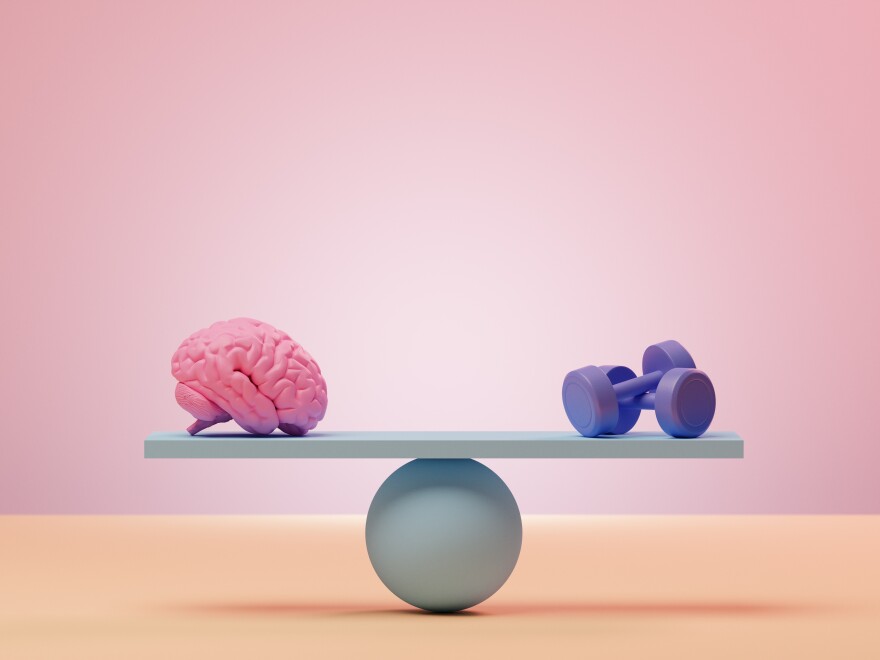Researchers have found the best proof yet that older Americans’ thinking and memory can be enhanced by a mix of brain training, exercise, and diet.
According to a study of almost 2,100 inactive adults in their 60s and 70s, those who followed the rigorous program for two years not only had better mental health but also seemed to be less affected by the typical aging decreases.
According to Laura Baker, a professor of gerontology and geriatrics at Wake Forest University School of Medicine and one of the study’s lead investigators, “these people are obtaining cognitive function scores that are similar to people [like them who are] one to two years younger than they are.”
According to Jessica Langbaum of the Banner Alzheimer’s Institute in Phoenix, who was not involved in the study, “this is really showing that we can change people’s trajectories over time.”
At the Alzheimer’s Association International Conference in Toronto, the findings of the so-called POINTER study were presented. The Journal of the American Medical Association published them both at the same time.
The outcomes align with previous findings from a smaller Finnish study that included a population with less diversity. They also align with decades of research that suggests individual therapies, such as exercise, could lessen aging-related changes in the brain and cognition.
A study of people at risk
Participants in the POINTER trial had to be between the ages of 60 and 79, have normal memory and thought processes, and be at high risk for Alzheimer’s disease and cognitive decline.
“You had to be sedentary, not a regular exerciser, and you had to be consuming a suboptimal diet,” Baker explains.
To improve their diet and increase their exercise, half of the participants were invited to devise a strategy on their own.
The other half started a rigorous, highly regimented program that included four times a week of aerobic exercise, following a heart-healthy Mediterranean diet, online cognitive training, required social interactions, and blood pressure and blood sugar monitoring.
Tests of memory and cognition showed improvements for both groups, although the intensive group’s performance was noticeably superior.
For many participants, the rigorous routine was “life-changing” despite its challenges, according to Baker. “With coaching, supervision, and lots of encouragement, the majority were able to make significant and long-lasting changes,” she says.
“There is no way to form a new habit or change behavior without intentional work on a regular basis,” Baker asserts. “It’s impossible.”
Next comes the hard part
The POINTER study cost the Alzheimer’s Association close to $50 million. Even more money was spent by the National Institutes of Health to have numerous people undergo blood testing, sleep studies, and brain scans, which will yield further details once they are published.
The findings only apply to aging-related changes in the brain, not Alzheimer’s disease. However, researchers believe that altering one’s lifestyle to enhance cognition and slow down “brain age” will probably postpone dementia, including Alzheimer’s.
In order to put what they’ve learned from POINTER into practice, the Alzheimer’s Association intends to invest an additional $40 million over four years.
The next stage, according to research co-author Heather Snyder, a senior vice president at the Alzheimer’s Association, is “the translation from the POINTER prescription to how we then deliver that into the community.”
According to Snyder, the group will ask a variety of questions in order to achieve that: “What will someone answer? Will their healthcare provider be the source of it? Is it an app of some kind, a technological incentive? Is it anything they do with their technology?
According to her, Americans’ increasing thirst for advice on how to enhance their brain health should support these kinds of behavior change initiatives across the country.
“At the Alzheimer’s Association, it’s one of the top questions we get,” she explains. “My father had memory issues, and my mother had dementia. What can I do?” is a common statement. And for someone, that is an inspiring question.
According to Langbaum, support from the country’s healthcare providers would be a crucial first step.
“Doctors should be treating lifestyle interventions as they would a drug,” she asserts. Prescription regimens like the one in POINTER would need to be prescribed, and insurance companies would need to pay for them.
Results from ongoing studies could provide an additional impetus to adoption. These include examinations of blood tests and brain scans that show whether quantifiable changes in brain health coincided with an individual’s cognitive progress.
It is anticipated that the findings will be released later this year. Even those who are leading healthy lives may want to step it up in the meantime, according to Langbaum.
“If you already do the Sunday crossword puzzle and it’s not challenging, pick up something new, find that exercise regimen that you’ll adhere to,” she states, “and if you can do it around people, that’s even better.”
Socializing is one of the best ways to keep your brain youthful, according to Langbaum.
Copyright 2025 NPR






